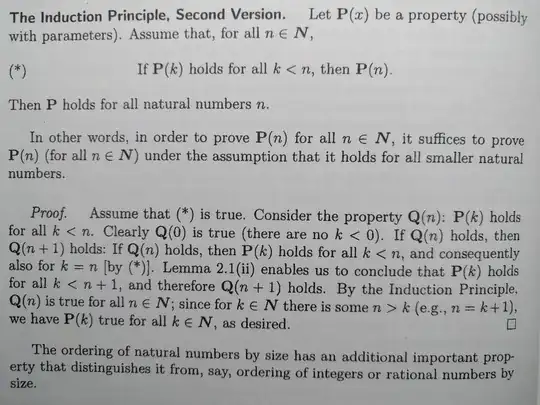It is a principle and proof from Introduction to Set Theory, Hrbacek and Jech.
In the proof, line 1 and 2, I couldn't understand why $Q(0)$ is true.
$Q(0)$ means that "$P(k)$ holds for all $k<0$".
I understood there are no $k<0$.
And then I couldn't proceed.
